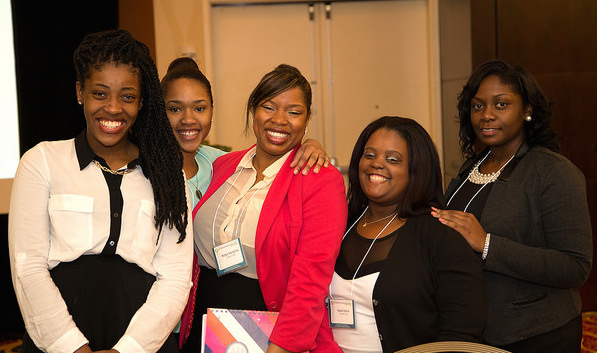New Fellowships Take on Lack of Diversity in Environmentalism and Philanthropy
/
The environmental movement, like philanthropy, has a race problem. There are some emerging funding efforts to address it, including new fellowships hoping to introduce more diverse leadership into the field.
We come down pretty hard on the mainstream environmental field for its persistent whiteness, for good reason. The lack of diversity in green NGOs and foundations is well documented, with around 12 percent of staff being people of color, according to one recent landmark report.
One thing that’s particularly troubling about that specific study is the finding that, while many express interest in initiatives to improve diversity, numbers nosedive when leaders are surveyed about the likelihood of their organizations to support them. In other words, sure, they like the idea of it, but it probably won't happen.
These numbers are troubling for many reasons. For starters, the United States is well on its way to becoming a majority-minority country, with some states and top cities already there. But it's fair to say that corporate America is doing a better job of embracing and adapting to historic demographic changes than key parts of the nonprofit world, including the environmental movement. That doesn't bode well for green market share in the face of a future when ecological stresses—and the need to rally the public to address them—will only become more acute.
Still, there are a lot of promising pockets of activity growing in environmental justice circles, among those fighting environmental racism, as well as efforts to introduce more people of color into mainstream organizations. Green 2.0 is one movement-wide initiative that’s been beating this drum loudly, and working to establish better metrics on the subject among major NGOs and foundations. It even picked up an endorsement from Mark Ruffalo, our fave Hollywood environmentalist (sorry Leo).
Related:
- The Goldman Winners Are Inspiring—Too Bad Such Bold and Diverse Work is Underfunded
- A Call for Diversity Data Is Met With Silence by Many Green Funders. What's That About?
A great op-ed by Environmental Grantmakers Association Executive Director Rachel Leon and University of Michigan Professor Dorceta Taylor, who authored the report cited above, called out the insufficient commitments to diversity in the mainstream movement, while pointing out several points of hope.
In particular, they highlight some fellowship programs launched in the past year or so backed by philanthropy, and supporting future leaders from underrepresented communities and communities of color.
One such program is actually a partnership between the EGA and the University of Michigan, the Environmental Fellows Program (EFP), announced this year. It’s a national program that seeks to diversify the environmental and conservation philanthropic sector through 12-week paid internships with a set of partner foundations and NGOs. Funders of the program include C.S. Mott, Island Foundation, New York Community Trust, Pisces Foundation, and some others.
Also based at University of Michigan, the Doris Duke Conservation Scholars Program, funded by the foundation of the same name, looks to diversify the conservation workforce by connecting 20 undergraduates with lab research and internships with environmental groups. One cool thing about this program is that it not only supports young people from underrepresented backgrounds, it actually teaches an approach to conservation that incorporates diversity and inclusion. This is especially encouraging, because the race problem in environmentalism has just as much to do with a limited view of the field itself as it does with staffing.
A third program worth mentioning, even though it’s not limited to the environmental sector, is the Momentum Fellowship. This one is coordinated by affinity group Philanthropy Northwest, and kicked off its first cohort of fellows in 2015. Regional environment funder Meyer Memorial Trust, which has made a strong commitment to diversity, is one of the participating foundations.
Seeing these programs driven by philanthropic affinity groups is encouraging, because foundations have a massive role to play in improving the field. For one, they have a unique bird’s-eye view of the sector and big picture currents running through it. They also hold the purse strings, and can thus reward or not reward groups based on whether they get the need for diversity. Right now, funders overall are not doing a great job of driving diverse outlooks, underfunding community and justice groups and disproportionately funding the big green NGOs.
Related: Where Is Environmental Giving Headed? Here's a (Mostly) Hopeful Look
As Taylor and Leon put it in their column:
[P]hilanthropy and the field have a long way to go when it comes to diversity—an issue that we believe stands in the way of the environmental movement’s overall effectiveness. Grassroots organizations remain underfunded, and philanthropy has yet to catch up with demographic shifts.
Again, the hopeful thing is that environmentalism is changing, just as the country is changing. Funders need to get with the program.








